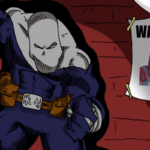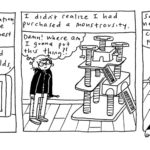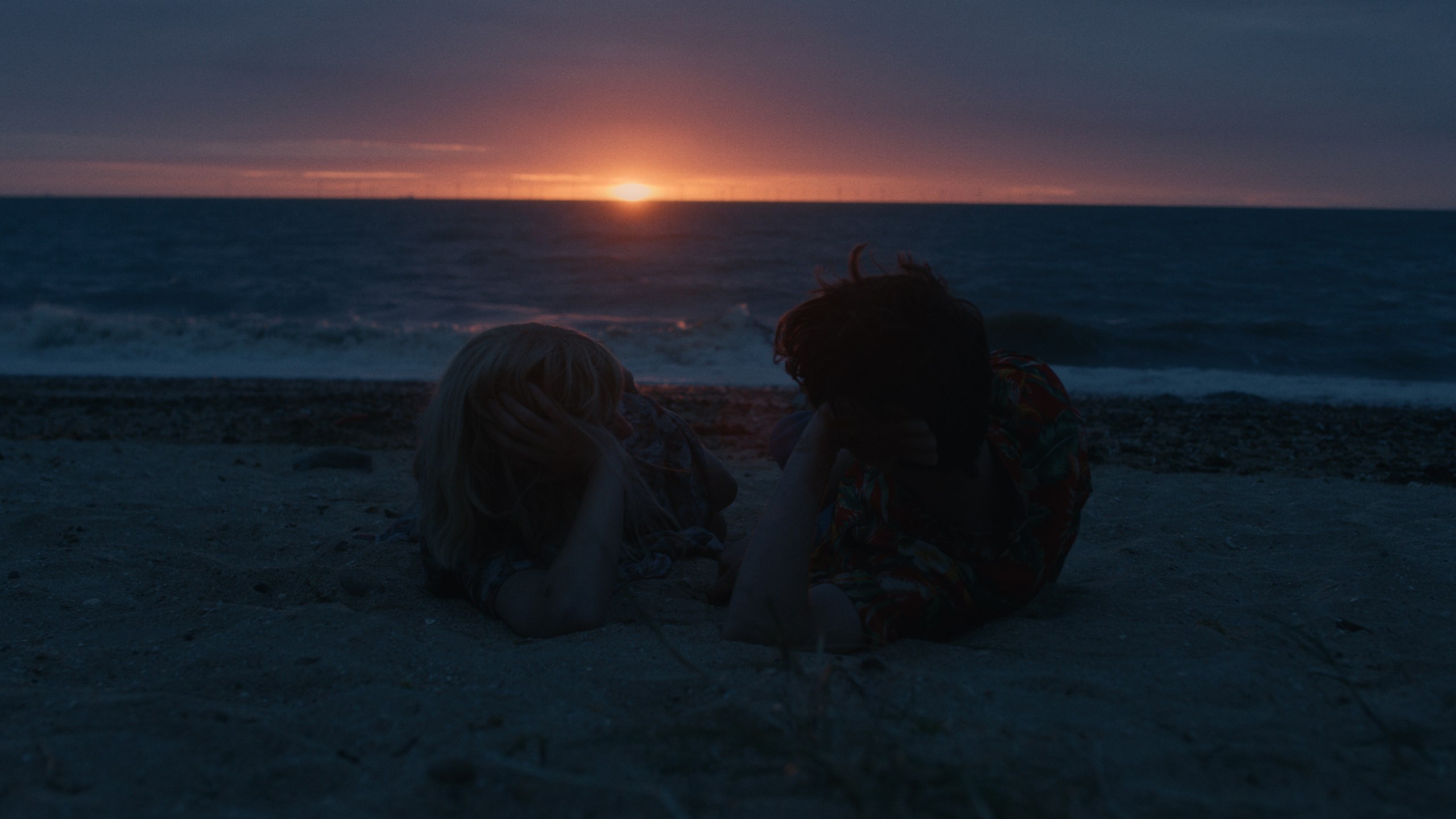
THE END OF THE F***ING WORLD: Episode Eight – Review
Starring: Jessica Barden, Alex Lawther
Creator: Jonathan Entwistle
Director: Lucy Tcherniak
Writer: Charlie Covell
Based on the comic: TEOTFW by Charles Forsman
Review by: Joshua Leto
Episode eight starts with an ominous shot of James running on a rock-strewn low tide, which we quickly cut from and learn is one of the flash forwards that this show has used to great effect. James and Alyssa burying the dog that Alyssa’s dad killed in the last episode brings us back to the arc of change and growth that we have experienced with James.
Early in the series, James expressed his fear that he was a psychopath in a defeated manner, as though he were being pulled into these behaviors, rather than pushing himself into them. Here we see James taking control of his future and kissing Alyssa1. Beginning right here, this episode becomes about James owning his own behavior, and therefore his future. Shortly, rather than exposing himself physically and consummating their relationship, Alyssa holds back and James exposes himself emotionally, saying, “My mom killed herself. I was there. I didn’t do anything.” This contrasts with their first days together, when James is simply pulled into Alyssa’s orbit and follows her lead in every little thing.
Alyssa tells James the sort of thing that you can hear and even logically believe, but you can’t change as a person until you feel it differently, “It wasn’t your fault.”
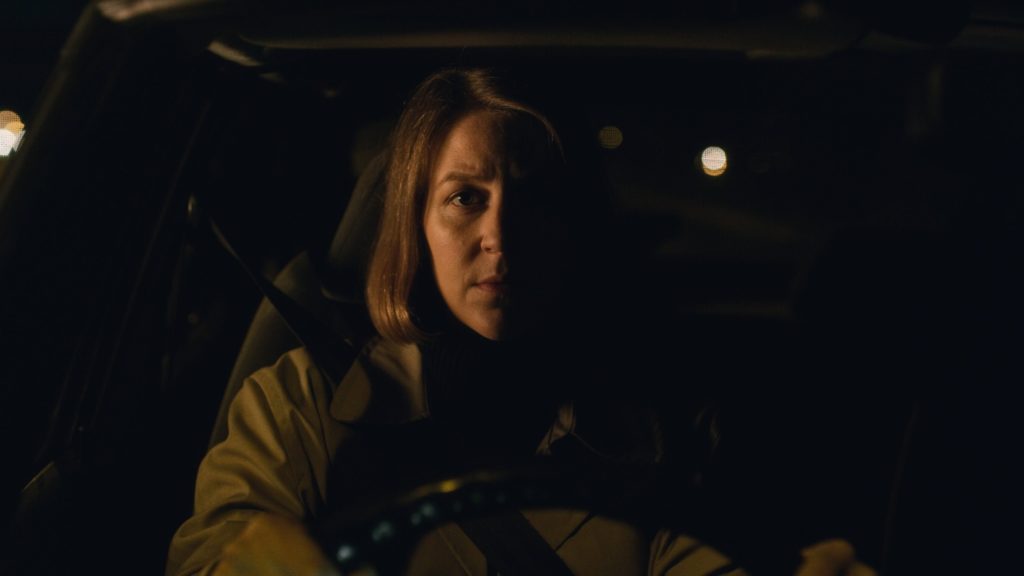
James and Alyssa recognize that they have to move on and make an undercooked plan to steal Leslie’s boat and float away. They return to Leslie’s trailer, where DC Noon has been lying in wait. This brings the four characters together in Leslie’s trailer, sitting not far from the end of the world. This is where the adults in the kids’ lives fall back into their roles of failure or support. Leslie is the narcissist that James feared he was, caring only about himself and the reward, while DC Noon shows the children compassion and empathy by being genuine and honest with them.
The dark humor rolls in with a stabbing, an ancient gun, blunt force trauma, and a good old-fashioned roundhouse punch. The cavalry arrive and the kids literally make a run for it. James knocks Alyssa out, trying to prove that the crime spree is all his idea. A shot is fired and James runs. Another shot is fired and the screen cuts black; roll credits. I have yet to read any other thoughts on this series from anyone else, but I imagine this is seen as a cliffhanger by most.
If this is the end of the series (or The End Of The Fucking Series if you prefer), I find it easiest to assume that James is captured. His being shot and killed is another possibility. As a cliff-hanger, there is only one way to go, and James will survive and be captured in season two. If he is somehow killed2, then the story changes completely and James becomes a tragic hero. It would set up a depressing season two.
Our main pair have, via the traumatic experiences in the few days of their lives we’ve been witness to, grown closer together. James has accessed his emotions and opened up to share them with someone else. Alyssa has acknowledged her emotions, and controlled her behavior enough to share herself with someone else. There is a shot of Alyssa and James holding hands and it is significant for the fact that she is holding his deformed (“gross”) hand, which she shied away from in episode five. She has shown that she can make subtler choices than all or nothing. This makes the act of stabbing her father and hitting DC Noon in this episode more effective. She is less a petulant child fighting against her parents than becoming an adult, fighting for self-reliance.
The redundant voiceover that was so frustrating in the series was used more here in the finale. Another thing that never really came together for me were the adult characters. Too many of them remained caricatures, drawn quickly with little depth. James’s Dad (Steve Oram) gave the most nuanced performance, while Alyssa’s Dad (Barry Ward) got plenty of screen time and a showy character. Alyssa’s Mom (Christine Bottomley) and Stepdad (Navin Chowdhry) were very flat, not because of performance, but with little to do in the script. They felt the most like cliches to me.
At the same time, more focus on the adults would have taken away from the stories of our main duo. I understand why this didn’t happen, but if that’s the case, why spend so much time on it after all. It seems to me that the adults were intended to give the audience a voice in the series, but I wish the creators had placed more trust in us.
That said, Gemma Whelan and Wunmi Mosaku, as DCs Noon and Darego respectively, had solid characterization, but the series ended without a complete arc. They were left with unfulfilled desires. Darego seemed to be reaching out to Noon in episode seven and, we never saw the characters interact again, other than plot necessities. Noon came the closest to resolution, with her sympathy for the kids rebuffed by a gun stock to the head. Their performances and the tension between them was endlessly entertaining. They even had their own theme music, which was cool and effective.
I did a little bit of research on the credits and realized that the last four episodes were shot by a different Director of Photography than the first four (Ben Fordesman, from whose website I lifted the images in this post). I thought the last episode in particular had some beautiful composition. There were times where our characters languished in episode seven as well, and these were shot nicely. The bulk of the last two episodes was set at Leslie’s trailer, and the ocean and the rolling hills were a nice backdrop, dry and washed out, and there were shots that took advantage of this, contrasting the emotional amplification of the characters with the muted blondes and greys of the field and the sky. The final episode is the most visually striking and attractive since the first. Fordesman brought out images of England that echoed the Midwest of Malick’s Badlands.
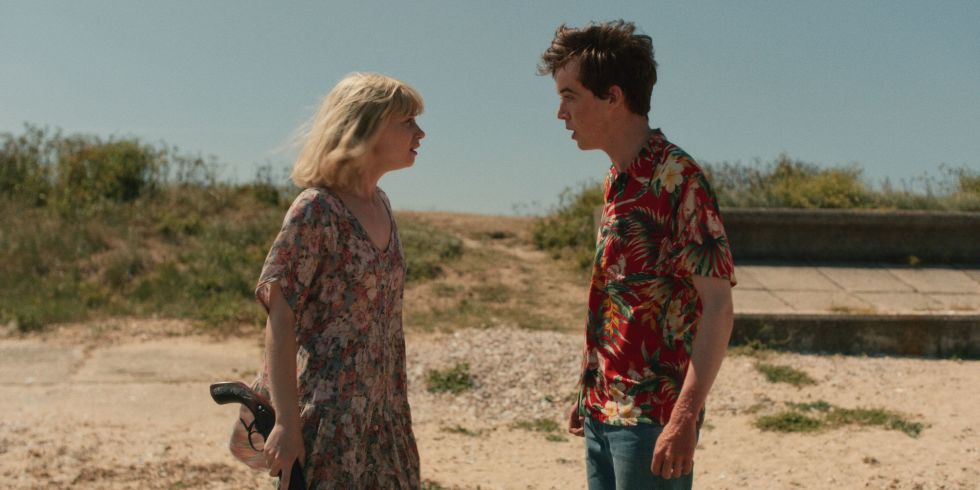
I enjoyed the music throughout the series. I heard several great songs, both familiar and new to me, throughout the series, and only a few felt heavy-handed or from overused sources. I would be happy to skip the Ricky Nelson version of Lonesome Town and think if these lyrics were so critical, a cover would have worked better. This just felt a little too on-the-nose at this point. The honky-tonk vibe in the last two episodes, however, was spot on. The last episode wisely avoided pop music, and the score was compelling. The industrial feel of the instrumentation added to the pressure of the world closing in around our rebellious pair.
Rating: Watch It . All in all, this was a very satisfying series, built around a handful of tried and true movie tropes, but told with compassion for its main characters and a dark sense of wit that balanced the outright darkness of some scenarios. Jessica Barden’s performance as Alyssa was not only charming and compelling, but subtle when it needed to be in a way that provided a counterbalance to the unsubtle actions that she and James chose. She managed to take a nihilistic character and give her a warm and natural heart, earned through her actions as the series came to an end.
1 Again, explained in unnecessary voiceover.
2 This stretches believability, as he is running away from authorities and not posing immediate danger to anyone.


